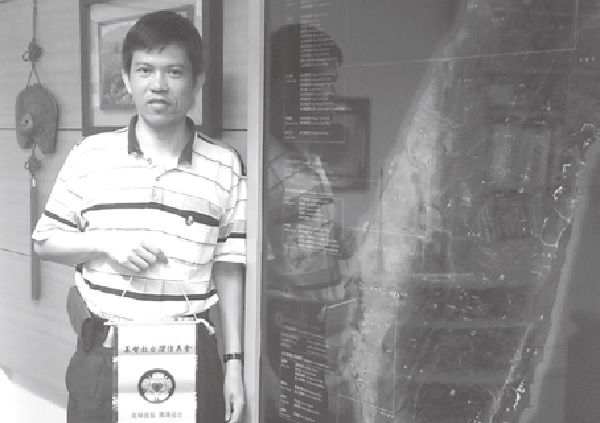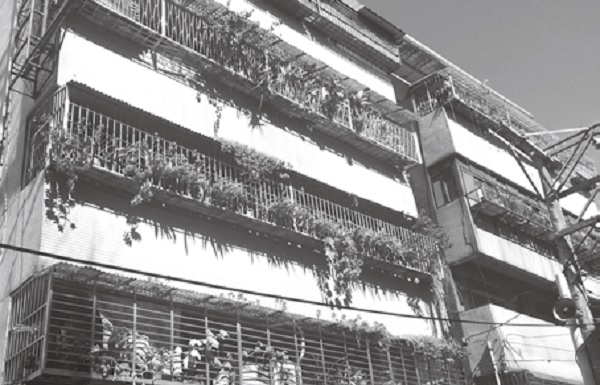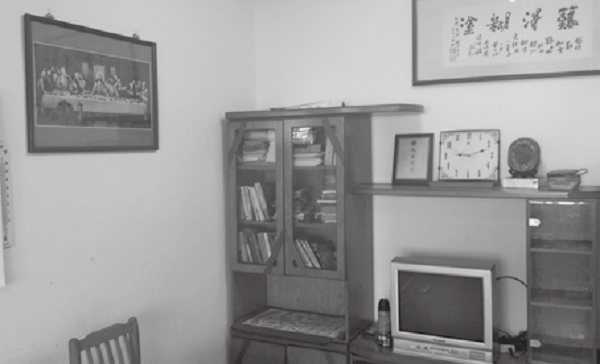Diligent planning leads to abundance
【Sectarian Chapter】
Picture provided/Chen Zhihong

The average life span of human beings continues to increase, and the number of years from retirement to death is increasing steadily, so that the amount of pension required to maintain basic life is also becoming larger and larger. Modern people are having fewer and fewer children, and the amount of financial support they rely on in old age is also relatively reduced. Invisibly, the need to prepare their own pensions is increasing. With the development of society and economy in all aspects, the retirement system has become more and more popular, and the church cannot be independent of the overall development trend of the entire society. Properly establishing retirement arrangements for pastoral staff has become an important issue.
Respond to ecological changes and innovate and reform
The Lutheran Church in Taiwan celebrates its 60th anniversary in 2014. The establishment of a retirement system for preachers can be divided into three stages of development-
1955-1988
There is no retirement system at this stage. In the early days of the church's establishment, its financial capacity was limited. The church's goal was to build churches and be self-supporting, and there was no spare time to consider the needs of preachers. At that time, most of the preachers were young and strong, and it was still early to retire, and the entire Taiwan Society is still in the concept and social atmosphere that old age should be taken care of by children, and most people do not pay much attention to preparing for life after retirement.
1989 to late 1990s
The Lutheran Church in Taiwan has formulated the "Living Subsidy Measures for Retired Pastoral Staff", which is modeled on the retirement system for military, civil and religious personnel, and provides monthly living subsidy to retired pastors based on their years of service (monthly retirement system). In addition, 16 dormitories were built in Yonghe City, Taipei County for retired pastors to live. This was considered a forward-looking move by the Taiwanese church at that time, and it played a wonderful role in the 1990s. Its advantages mainly include two aspects:
1. It is a beautiful thing to provide basic life care for retired pastors and express recognition and respect for their past services. In the early years, the pastors of the Taiwanese church devoted their youthful and best years to God and the church. However, the church’s living supply for the preachers was very limited, and it was very difficult to maintain a living, let alone buy a house and save a pension?
2. Because life after retirement has a certain financial source and is subject to relevant laws and regulations, it is easier for older pastors to retire and hand over the baton to younger preachers. The church can maintain a certain level of metabolism and does not Worried about not having any income, he insists on not retiring, causing trouble to the church.

▲The beautiful map of Taiwan in the Taiwan Lutheran General Office shows the Lutheran churches distributed in various cities. The author holds the association's logo and banner and reads: "Lift Christ high and spread the gospel." He also hopes that the association will establish itself in Taiwan and look to the world.
Although this retirement system has advantages and has been effective to a certain extent in the past years, its biggest difficulty is that the monthly retirement system imposes too heavy a financial burden on the association. When it was first implemented, the interest on time deposits in the Bank of Taiwan was still 7%. The church's annual retirement reserve for the preachers could barely be covered by the increase in interest. However, bank interest rates have been declining in recent years, and the annual interest of 1% is better than nothing. . In addition, the average life span of modern people is longer. In the past, the retirement reserve fund saved for each missionary colleague was far less than the amount paid to him on a monthly basis before the Lord took him back to heaven. The difference required a heavy investment from other financial sources. maintain.
There were not many preachers in the Lutheran Church in Taiwan in the early days, and there was a gap of 20 years. Even so, this system has caused a serious financial burden after more than ten years of implementation. If it continues to be implemented, a new wave of retirements will begin in 2015. This will bring the General Assembly's finances to the brink of bankruptcy, and both the General Assembly and its missionary colleagues will suffer losses to varying degrees.
early 2000s
Some co-workers realized the seriousness of the above-mentioned problems and began to propose discussions and studies. The author had just become a member of the General Conference and was invited to participate in this research group. Unfortunately, the group ended after one or two meetings, but this allowed me to plant the seeds of paying attention to this issue.
In 2005, when I served as the director-general of the federation, I joined the Pension Management Committee to start deliberations. After repeated communication, discussion and revision at more than a dozen large and small meetings, more than a year later, it was time for the Taiwan Labor Pension Plan ( At the moment when the old system and the new system were transformed (retirement from labor), the revision of Taiwan’s Lutheran preacher retirement system was finally completed in 2006.
Capital preservation VS. investment, choose carefully
The new system takes into account the continuous improvement of the average life span of modern people and hopes to maintain the guarantee of monthly living expenses after retirement. However, the biggest reform is to transfer the unit responsible for this responsibility from the federation to the insurance company. The annuity insurance provided by insurance companies includes capital-guaranteed type and investment type. The capital-guaranteed type is relatively risk-free, but the amount you can receive every month is relatively reduced when you retire.
Investment types must bear their own investment risks. However, if invested properly, the same pension invested every year will yield better returns, and the amount that can be withdrawn each month will increase relatively. The final resolution of the meeting was to adopt investment insurance policies, but we chose professional financial advisors. Based on their recommendations on investment targets, if the annual return rate is higher than the 1.5% of bank fixed deposits, the investment advisor will only start charging advisory fees in proportion to the income. .
The Lutheran Church in Taiwan is a denominational church, and the church is divided into churches and general conferences. Our system is: the church allocates one month's salary of the preacher every year as a retirement reserve. In principle, this month's salary is placed in the investment annuity of the insurance company (if the preacher does not want to take risks, he can choose to deposit it on his own) time deposit account with a bank). In addition, the General Conference allocates a fixed amount of retirement reserves to personal time deposit accounts in banks every year based on the preacher's rank (pastor, teacher, preacher).
Retirement funds are divided into two parts and one part is deposited in the bank. It is characterized by low risk, but generally speaking, the returns are also low. Bank savings can be withdrawn once upon retirement, but if necessary, they can also be converted into insurance annuity products upon retirement. The other part encourages investing in investment-type annuities. Although there may be some risks, the expected returns are higher. With an investment annuity, you can choose a lump sum withdrawal or monthly payments when you retire.
Fairly consider needs and show spirit
Pension contributions come from two sources. The church provides one month's salary, while the general association provides a fixed amount. The spirit of system design is to take into account both fairness and necessity. The salary system for Lutheran ministers in Taiwan is designed based on marital status, number of children, professional titles, degrees in theological training, and years of experience (some churches increase or decrease the salary due to the urban-rural gap and the financial status of the church). salaries of fellow missionaries).
If the General Conference allocates money based on the church’s salary for preachers, then the accumulation of pensions for those with more pensions will always be greater, and those with smaller pensions will always be less. However, the basic needs of a person are not very different, so this is a good idea for those in rural areas and church members. For ministers serving in churches with small numbers, the retirement benefits they receive will be lower. But if the church's allocation is also a fixed amount, then it will be very difficult to set this number, because if it is set too high, some churches cannot afford it; if it is set too low, the pension savings will be insufficient.
This is somewhat unfair to preachers who pastor urban churches, because according to the average living standards of their members, the church can provide a higher retirement reserve, and in the future they may live in the city after retirement, and their living expenses It is also relatively high, and it will be very difficult to live with the same retirement benefit. Therefore, the allocation to the church depends on the individual's salary, because the salary provided by the church is in line with the church's ability; and the general association's allocation adopts a quota system, which can have the effect of balancing the gap between urban and rural areas.
When pastors plan for retirement, both themselves and the church have responsibilities. Therefore, we encourage pastors to save more money into their personal accounts in investment-type annuities. This way, the more funds invested, the more accumulated income will be.

▲In the 1990s, the Taiwan Lutheran Church built 16 dormitories in Yonghe City, Taipei County for retired pastors to live in. This was a forward-looking initiative for the Taiwanese church at that time, and it played a wonderful role.
Enjoy retirement with a house to live in
In addition to monthly living needs, accommodation and medical expenses are two other needs that cannot be ignored after retirement. Regarding accommodation, the Lutheran Church in Taiwan built 16 dormitories for retired pastors in the early days, which also played a certain role. However, it faced two major difficulties. There will be no financial resources to continuously build new dormitories.
Second, the churches pastored by the preachers are scattered all over Taiwan. If they have to move to retirement dormitories in Yonghe after retirement and leave their familiar life circle, it is not necessarily an ideal choice for them. Therefore, starting in 1998, we formulated the "Loan Measures for Pastoral Staff to Purchase Self-Used Homes" to provide low-interest loans and encourage pastors to purchase their own homes. The goal is to allow pastors to have a home to live in a place they like after retirement.
Medical expenses are an extremely heavy financial burden for the elderly. Due to Taiwan's implementation of the national health insurance system, the medical expenses of retired pastors have been significantly reduced. We don’t need to invest in designing a system in this regard. The only benefit we provide is: if the preacher retires and wishes, he can continue to join the association’s group insurance, and when he gets sick, he can enjoy medical expenses (health insurance is still available) a certain deductible). In some countries that do not have universal health insurance, medical insurance should be a very important link in the design of the pastoral retirement system.

▲A corner of the simple Ningxin’s dormitory for retired pastors.
Jehovah Jireh God, completely entrusted
There are teachings in the Bible regarding the principles of how to provide for the life needs of preachers, and there are also some tensions:
1. Those who preach the gospel should live by the gospel (refer to 1 Corinthians 9:3-14)
2. Sometimes in order not to use up the authority to preach the gospel, one would rather not accept the church’s provision (refer to 1 Corinthians 9: 15-18)
3. Elders who manage the church well should be considered worthy of double honor (1 Timothy 5:17)
4. Godliness plus contentment is great gain (1 Timothy 6:6)
5. Don’t rely on uncertain money, but rely on God who richly provides us with all things for our enjoyment (1 Timothy 6:17)
Workers deserve wages. In modern society, wages include retirement reserves. The Lutheran Church in Taiwan has brainstormed and sincerely planned according to the inspiration from God. On the other hand, believers should also be taught that loyal servants who are good at teaching, managing and working hard to serve God should receive double the respect. However, if a preacher takes the initiative to secure generous living support and retirement benefits for himself, he may be in danger of relying on uncertain money.
The ideal situation is for believer leaders to decide on their own how to treat preachers, with the idea of "trying to give the best to God's loyal servants." Finally, no matter what the Christian leaders decide, preachers should accept it with contentment and joy, because we rely on the God who gives all things abundantly. The security of life after retirement is based on God, not on God. On the amount of pension.
 Author profile Pastor Chen Zhihong, ordained in 1994. He served as the overseer of the Lutheran Church in Taiwan from July 2008 to June 2014. He is currently the president of Daosheng Publishing House and the director of the Theological Education Center affiliated with the Lutheran Church in Taiwan.
Author profile Pastor Chen Zhihong, ordained in 1994. He served as the overseer of the Lutheran Church in Taiwan from July 2008 to June 2014. He is currently the president of Daosheng Publishing House and the director of the Theological Education Center affiliated with the Lutheran Church in Taiwan.
